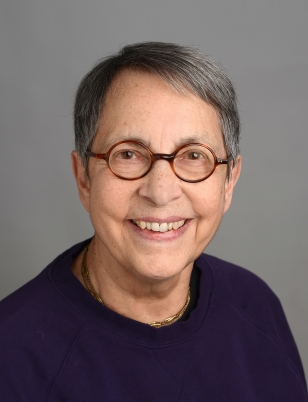
Imagine my surprise and delight when, in January this year, I received an email in Dutch from a fellow poet! Elsa Fisher had read and liked some of my poems. We started a correspondence and were going to meet at the end of May. It’s a great pleasure to introduce this month’s poet who has ‘a clear eye and an ironic ear’.
Elsa Fischer was born in The Hague, Holland. She has lived and worked on four continents and, later in life, studied Art History in Canada and at the Sorbonne. Always a lover of poetry, she joined a poetry workshop after her retirement.
She has two published pamphlets: Palmistry in Karachi (Templar Poetry, 2016) and
Hourglass – Poems from the retirement home (Grey Hen Press, 2018). Other poems have been included in a range of magazines and anthologies. She is currently preparing for a third publication.
Elsa lives in Bern, Switzerland, in a lovely retirement home (where some of her poems are set). She likes to point out that she does not belong to the Woopies (well-off older persons) but rather to the Yelpies (youthful energetic elderly persons)….
I hope you enjoy the range of these poems, with their sharp observation, humour, empathy and poignancy.
Palmistry in Karachi
“…the old days when we were still young,
naïve, hot-headed, silly, green. A little bit’s
still there…” Wislawa Szymborska
At twenty I danced the tango
in Karachi at the saried begums’
Red Crescent Bazaar with a gay
attaché who had that rhythm in
his blood and where a sketch
of my profile by a local genius
fetched handfuls of rupees.
I shook hands with Ayub Khan
and Fatima Jinnah, ignorant
of who they were and that
he would have her killed.
There was my near-drowning
in the Arabian Sea and a wicked
camel race along its shore.
And I’ll tell you this: I lost
my innocence in Karachi.
To an Italian born without
toenails and his palms
with no lines so that you,
my friend of little faith, claim
he could not have existed
and that I’ve made it all up.
Seedpods
I love how your wisteria seedpods exploded in the night,
love to hear drops falling from where someone waters geraniums
early in the morning as I am writing at the wrought-iron table,
its rusty flakes cutting into skin and I remember how, in another life,
they caught my mother’s dress as she sat down to tea under
the glycine, my first French word, and for a startling moment
I hold this image called up by smells of soil and fleshy leaves,
by all this art nouveau abundance.
In the beginning are my hands
after Andy Goldsworthy
they are my skin-cut tools
cracked as dried earth.
I trust them, they lead me.
I listen to the passive witness
of stones, their dialogue with trees,
learn how they rely on each other.
I need the energy of peat – the melt of mud
and mineral feed and sheep’s piss on canvas.
Above all I love my icicles – reconstructed,
glued with my spit or draped like lobster
claws and oysters on a plate of river ice.
I square black-rooted bracken stalks
thorn-pin chestnut leaves into floating
snake ribbons until surfaces open up
and nature itself becomes the object found.
I go into its internal spaces, lie spread-eagled,
feeling the pull, feeling the rain.
Safe
Like ducks waiting for the cull
we line up at the doctor’s,
baring arms for the flu jab.
Once you stood like this, in an orderly row,
mouth wide open to receive the sugar lump
that the school nurse had carefully dosed
with the life-saving drops of Dr Salk’s vaccine.
To be protected from the fate of that boy,
fitted with braces, who sat for years reading
as we messed around with bats and balls in PE.
A nurse helps with the sleeves
and we return to our coops.
Safe for another season.
Trespassing
I’m digging out my winter things.
And watch from behind the slats
how he opens a wardrobe, takes out
the bridal gown for her to hold,
then gently crowns her with a garland.
On a small table lie the bric-a-brac
of a long marriage. Masai beadwork,
a glass paperweight from Venice,
the matryoshkas.
He gives her a moment,
then puts the gown carefully back
on the coat hanger, smiles as he lifts
the garland with its faded ribbons
from her hair. A whiff of Chanel.
He makes sure she’s comfortable
on the walker and wheels her away,
switching off the cellar lights.
I stand for a while, getting used
to the dark, arms heavy
with scarves and shoes.
















